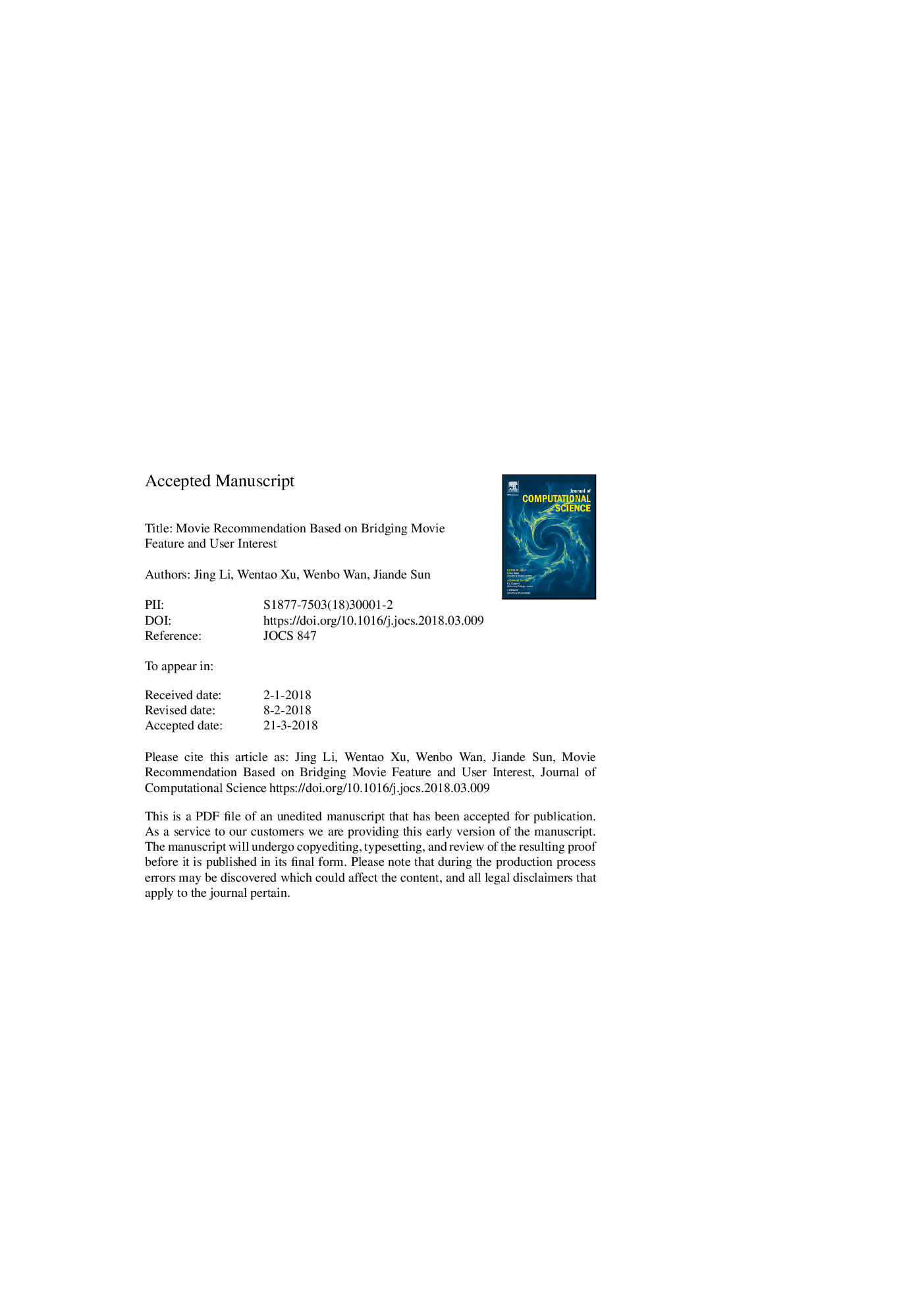| Article ID | Journal | Published Year | Pages | File Type |
|---|---|---|---|---|
| 6874398 | Journal of Computational Science | 2018 | 21 Pages |
Abstract
The traditional collaborative filtering algorithms have bad performance in the case of data sparsity, and are difficult to track the change of user interest. Even though many improved algorithms are proposed to solve these problems, it is still necessary for further improvement. In this paper, a novel hybrid recommendation algorithm is proposed to resolve the two issues by bridging the movie feature and user interest. In the proposed algorithm, the movie feature vector is formed based on the attributes of the movie, and is combined with the user rating matrix to generate the user interest vector. The movie feature vector and user interest vector are mutually updated in an iterative way, and then the user similarity matrix is constructed based on the user interest vector, which is usually difficult to be obtained in the case of data sparsity. Furthermore, the long-term and short-term interests are considered in the generation of the user interest vector, which aims to make the recommendation results adapt to the change of user interest. The experiments on the Movielens dataset show that the proposed algorithm outperforms some existing recommendation algorithms on recommendation accuracy.
Related Topics
Physical Sciences and Engineering
Computer Science
Computational Theory and Mathematics
Authors
Jing Li, Wentao Xu, Wenbo Wan, Jiande Sun,
